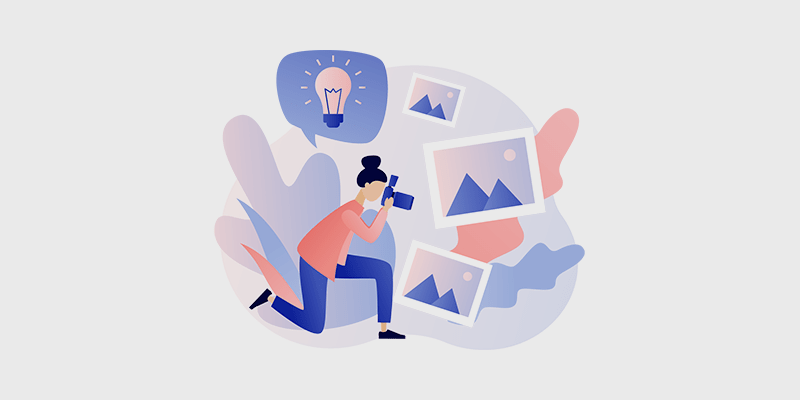Doctor exodus increasing, shortage of specialists
The state's investment is being wasted as skilled doctors, including those who studied on government scholarships, go abroad. The risk of quality decline and having to provide treatment by weak doctors in the future is increasing.
The number of doctors registered with the Nepal Medical Council is 38,499. Of these, 11,000 are specialists. Some of them are foreign doctors.
There is no exact figure for how many doctors registered with the Medical Council are currently in Nepal.
In a study conducted by the Nepal Medical Association in 2072 BS, about 36 percent of doctors were outside the country. At that time, only about 11,000 of the 17,000 doctors registered with the council were in the country.
Recently, doctors are being attracted abroad because they do not have guaranteed security at the workplace, are not paid according to their education and time investment, and do not see a career in Nepal. A clear indication of this is seen in the 'Good Standing Certificate' data provided by the Medical Council.
Doctors registered in Nepal must obtain a 'Good Standing Certificate' from the Nepal Medical Council to study or work abroad.
Not all people who have obtained a good standing certificate, which is required for registration with a foreign regulatory body, go abroad.
According to council officials, it is estimated that more than 70 percent of those who have obtained a ‘good standing certificate’ have gone abroad.
Out of 38,499 doctors registered with the Nepal Medical Council, 11,000 are specialists. However, in recent years, the trend of going abroad with a ‘good standing certificate’ has increased dramatically.
In 081/082 BS, the number of doctors who obtained a character certificate for study or work abroad was 2,681. In 2023, 2,318 people obtained a good standing certificate, while 2,692 doctors obtained registration.
Similarly, in 2022, 2,692 doctors registered, while 1,954 had good standing certificates.
In 2022, 1,954 people, in 2021, 1,327 and in 2020, 869 people obtained this certificate.
In 2021, 1,327 people obtained a certificate of good character. According to the Medical Council, 1,716 doctors were registered this year.
In 2020, 2,131 doctors were registered. In the same year, 759 people obtained a certificate of good standing.
Medical Council officials say that the number of people going abroad may be even higher as no one keeps integrated data on those going through processes such as study, fellowship, worker visa and dependent.
There is a continuous exodus of qualified manpower from the medical sector in Nepal. According to data from the Nepal Medical Council, the number of doctors going abroad is increasing every year.
In the last five years, 9,000 doctors have obtained a ‘certificate of good standing’ from the Medical Council. Among those who obtain such certificates, the highest number are doctors who are in the process of going abroad to the United States.
In the last five years, 2,466 people have obtained certificates to go to the US. Of which 276 in 2020, 273 in 2021, 496 in 2022, 843 in 2023 and 2,466 in 081/082 BS.
The number of doctors undergoing the process of going to the UK is also alarming.
In the last five years, 9,000 doctors have obtained 'Good Standing Certificates', with the largest number going to countries including the US, UK, Maldives, Australia, UAE.
In the last five years, 2,128 people have obtained certificates to go to the UK. According to the council, 162 people in 2020, 319 in 2021, 592 in 2022, 505 in 2023 and 550 in 2024 have obtained certificates to go to the UK.
Similarly, 216 people have obtained certificates to go to the Maldives in 2020, 403 in 2021, 453 in 2022, 395 in 2023 and 384 in 2024. The data also shows that the number of doctors going to Australia, UAE, Canada and Qatar is also increasing.
According to the Council's Registrar Dr. Satish Kumar Dev, the trend of doctors going abroad has increased significantly in recent years.
According to Dr. Dev, doctors who go abroad for study, training, fellowship or employment request a good standing certificate.
"Doctors have a high affinity for countries like the UK, America, Maldives, Australia and UAE," he said.
Most doctors going to the US want to participate in residency programs. The main purpose of doctors going to the Maldives and the UAE is employment. In Australia, the number of people who want to go for both study and employment is significant.
Dr. Dev warned that the exodus of doctors will lead to a shortage of skilled manpower in Nepal in the future. According to him, the minimum salary in the Maldives is 6-7 times that of Nepal, 8-10 times that of Qatar, and even more than that of the United States.
“It will be difficult to stop skilled doctors unless the state provides attractive opportunities and living standards,” he said.
Treatment is being escaped
The rapid exodus of doctors abroad in recent times has led to a shortage of doctors specializing in certain specialized and complex diseases.
For the past few years, there have been no admissions for doctors studying heart surgery, kidney and liver specialist studies in the DM and MCH (Super Specialist Research Degree) entrance exams.
According to experts, there have been zero or very few doctors studying super specialists in heart surgery and kidney and liver in the specialist field for the past few years.
Which, on the one hand, with the increase in diseases such as heart, kidney, liver and on the other hand, doctors are not interested in studying, such diseases will be prevalent in the country in the next few years It is clear that there will be a shortage of doctors in the field.
There are some reasons for the lack of interest in studying specialties such as heart, neurosurgery, kidney, liver, etc.
Complex and long studies, excessive hard work, low salary and allowances according to the effort and assignment, risky work, not being able to get a job in a private hospital after retiring from a government hospital or not being sure of a job even in a government hospital are the main reasons.
The outbreak of non-communicable diseases is increasing in recent days. According to doctors involved in the treatment, heart problems are becoming a factor in non-communicable diseases. Similarly, the burden of cancer, kidney, and tuberculosis is also increasing. Even now, the reason why such patients are forced to wait for a long time for surgery is the lack of enough specialist doctors.
Nepal Medical Association President Dr. Anil Karki says, “If the government does not create an environment for doctors to live within the country, there may be a situation where doctors from abroad will have to be brought in for treatment in 10 years.”
The Nepal Health Account 2017 published by the Ministry of Health and Population states that due to the state’s lack of investment in specialized services, more than 200 billion people go abroad for health care annually, and about 17 percent of citizens have become poor due to receiving health services.
Experts say that due to the government’s weak human resource planning and management policy, doctors in various fields have not been produced and ordinary people are dying due to lack of timely specialist services.
Why are doctors leaving the country?
The reasons for doctors leaving Nepal are not uniform. Some have chosen to go abroad because they did not get secure employment opportunities at home, some because they did not get a favorable working environment, and some have had to endure exploitation by private hospitals.
Many who studied at private expense argue that Nepal’s earnings do not cover the investment in education. The common attraction of all of these is the relatively high income they earn abroad. Although the reasons are different, the rapid pace of foreign migration has increased the risk that it will be difficult to find specialist doctors in various fields in Nepal in the future.
The government has not added new posts, and it has been 8 years since the Public Service Commission advertised for filling existing posts. 100% of specialist posts in central hospitals are vacant. Examples of which are Dadeldhura and Gajendra Narayan Hospitals.
The last time 100 doctors were appointed to government hospitals was in 2074 BS. As the health system is stuck in the old post structure of 25 years ago, the path to entry for new doctors is almost closed. Therefore, the only option left for many is abroad.
A survey conducted by a government study team coordinated by the then chief specialist of the Ministry of Health and Population, Dr. Tanka Prasad Barakoti, has shown that a large proportion of doctors are willing to go abroad.
The exodus of doctors has reduced the number of people studying super-specialists in complex diseases such as heart, kidney, and liver to zero or very low. This has increased the risk of drought in the future.
Of the 43 students who passed MBBS in 2022 from Tribhuvan University Teaching Hospital Maharajgunj Medical Campus, 100 percent are planning to go abroad.
According to the report, 41 of them (about 95 percent) had already registered for the foreign exam. Five of the 41 have passed the exam and entered the matching process, while 31 are taking the exam. Most of them plan to take the US medical license exam.
Also read: Government is ruining the health service by stalling the recruitment proposal
According to Dr. Barakoti, lack of safety in the workplace, not getting a salary commensurate with the investment of education and time, and no future for a career in Nepal are the main reasons why doctors are attracted to abroad.
The report also points to low salary and benefits, lack of meaningful and respected work, lack of opportunities for study, research and professional development, increasing violence in health institutions, and lack of sophisticated infrastructure as the main factors behind the exodus of doctors.
The tendency to stay there while studying
To become a doctor in Nepal, one must study for five years and six months at the undergraduate level. Then, one must study for three years for the postgraduate level and three years for the DM/MCh level. Due to the work experience required to study beyond the undergraduate level, many doctors are already 40 years old by the time they complete their studies. More than half of a Nepali doctor's life is spent studying.
However, doctors who have studied for 12/15 years and spent crores of rupees do not have good job opportunities and the service and facilities are very poor, so their attraction is to go abroad.
The economic, political and social environment in the country is chaotic. This situation has arisen especially because of the despair among doctors.
Former Dean of the Institute of Medicine (IOM) of Tribhuvan University Dr. Jagadish Prasad Agrawal says that the exodus of skilled doctors abroad in Nepal will seriously affect the quality of health services in the coming days.
According to him, most of the highly qualified doctors who pass the licensing examination of the Nepal Medical Council are preparing to go abroad.
‘The most competent person goes. There is a tendency to stay there while studying,’ says Dr. Agrawal.
Low salary and benefits, lack of respectable jobs, lack of research, increasing insecurity in health institutions and lack of infrastructure are the main reasons for migration.
Even those who studied on government scholarships go abroad The state's investment in crores has been wasted.
He opined that the practice of providing medical education to students with weak educational background in the medical education system should be stopped.
'If the trend of going abroad continues like this, the standard of healthcare providers in Nepal will decline,' says Dr. Agrawal, 'tomorrow, a person who has failed the council exam 32 times may have to be treated.'
According to Dr. Shree Krishna Giri, former vice-chairman of the Medical Education Commission, there are few job opportunities in Nepal.
'There are no opportunities in Nepal. And it was natural to look for them outside. The facilities available to doctors in Nepal are few and living conditions are difficult,' says Dr. Giri.
He mentioned the possibility of doctors who have studied abroad getting jobs there as another reason.
'If they go to study in the US, there is a greater chance of getting jobs there. That is why there is a trend of doctors who go to study and stay here,' says Dr. Giri.
'In 10 years, there will be a situation where doctors will have to be brought in from abroad.'
Dr. Anil Karki warned that the rate of emigration of health workers and doctors in Nepal is increasing rapidly and said that immediate policy reforms are needed to stop this trend.
According to him, the state's lack of adequate investment in the health sector, lack of proper management of human resources, low salaries and benefits, legal complications and workplace insecurity have created deep despair among doctors.
"If this situation does not improve, Nepal may have to bring doctors from abroad for treatment in 10 years," says Dr. Karki.
According to him, the high wages, living standards and safe working environment abroad have further intensified the trend of going abroad.
He pointed out the scholarship contract system, the mandatory one-year experience rule before master's studies, the lack of increase in permanent positions, lack of increase in salaries and benefits and excessive workload as the main reasons for emigration.
He said that the government should increase social, economic, political and security guarantees and services and facilities that are sufficient to survive so that skilled manpower can return from abroad and be retained.
Urging the government to increase investment in the health sector, improve facilities, remove policy barriers, and ensure safety in the workplace, Dr. Karki says, "We should make it a habit to find solutions, not just complain about going abroad."











